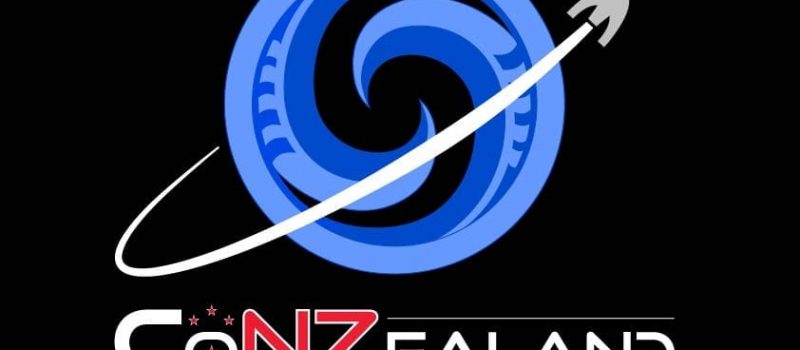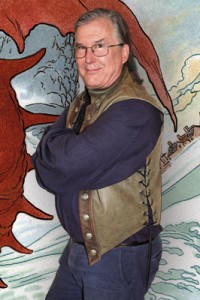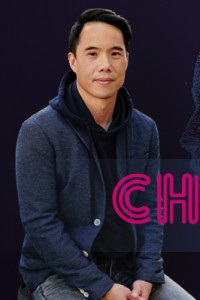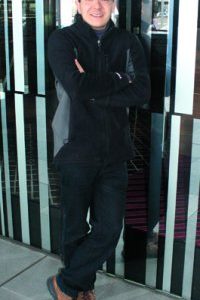CoNZealand Report

CoNZealand, the 78th World Science Fiction Convention, took place July 29 – Aug 2, 2020, making history as the first-ever virtual Worldcon. Guests of honour were authors Mercedes Lackey and Larry Dixon, artist Greg Broadmore, and fan Rose Mitchell. Reported membership was 2,556 attending, with over 1,800 members accessing through Grenadine and up to 1,700 accessing through Discord, compared to Dublin’s in-person 6,024 attending memberships, San Jose’s 5,440 attending members, and Helsinki’s 5,949. Adding CoNZealand’s 1,939 supporting memberships and 151 “unwaged memberships,” the registered memberships totaled 4,646 from nearly 60 countries, compared to Dublin’s total 8,322, San Jose’s 7,812, and Helsinki’s 8,753. Registration division head Lorain Clark said, “Virtual has meant a much wider range of fandom was able to attend than normal…. Sadly not all members prior to our going virtual were capable of and/or had the capacity to attend virtually. The digital divide is real and reliable internet access is not always possible even in first world countries.”
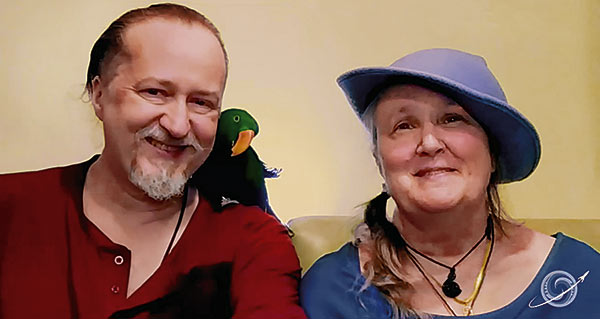
CoNZealand offered some pre-convention programming, starting with “Wild Cards as Alternate History”, with Melinda Snodgrass, David D. Levine, Max Gladstone, Daniel Abraham, and Carrie Vaughn on July 18. Regular events began Wednesday morning with the Dealers Hall reception, Zoom panel item Meditation for Trekkies, and the Escape Artists Fan Meetup. At the Opening Ceremony, the Big Heart Award was presented to Janice Gelb and Stephen Boucher. Also presented were three First Fandom awards: the Sam Moskowitz Archive Award to John Carter Tibbetts, the First Fandom Posthumous Hall of Fame Award to Chad Oliver, and the First Fandom Hall of Fame Award to Roger Sims.
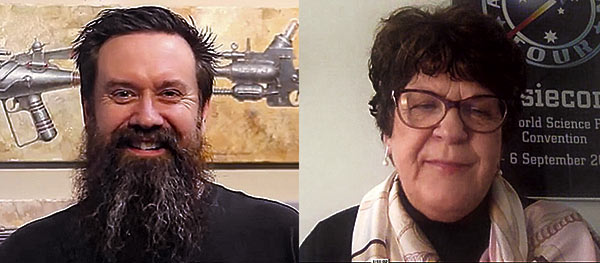
PROGRAMMING
Once rolling on Wednesday, programming ran extended hours, allowing a greater spread of time to attend for the many different time zones. The multiple tracks were able to include much of the usual fare of an in-person con. Real-time items were held on Zoom with companion conversations taking place on Discord. The schedule and convention guide was available via the app Grenadine and the website, with tracks including art, comic/graphic novels, costuming/cosplay, fandom, film, gaming, literature, music, Pasifika, writing, science/technology, and young adult, plus items for children and, of course, SF and fantasy. The schedule showed 612 items (down from 2019’s 1,218 items and 2018’s 771) with three items on the children’s track (down from 37 in 2019, 18 in 2018), and included 137 readings, 89 kaffeeklatsches, 20 workshops, seven book launches, and more.
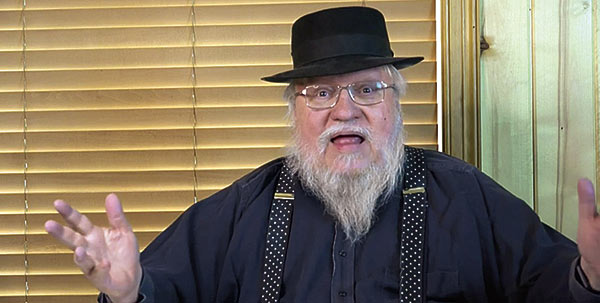
The programme division reported “more than 430 programme participants from around the world joined in the programme. Over 30 were part of the Inclusion Initiatives, to encourage engagement from indigenous, marginalised, and historically underrepresented groups in Worldcon.” Staffer Laurie Mann said, “The most attended panels included ‘Fantasy Today: The Best of Recent Fantasy’ (306 attendees), ‘Recent Scientific Breakthroughs – What’s Hot?’ (286 attendees), and ‘A Chat with Bob (Silverberg) and George (R.R. Martin)’ (278 attendees)…. GoH Larry Dixon celebrated his birthday the day before CoNZealand started with a preconvention birthday party in Discord. GoHs Mercedes Lackey and Larry Dixon read bedtime stories, discussed the use of ‘Animals in Fantasy’ and interacted with fans in their own Discord ‘We’ll Always Have Parrots’ cafe. Artist guest Greg Broadmore played a pre-con heavy metal concert….” Planned special events included the Retro Hugo Awards and Sir Julius Vogel Awards ceremony, with a small in-person crew in NZ plus virtual presenters; several short plays by the Atlanta Radio Theatre; the Gravity Awards; a number of musical concerts; and four-hour film blocks, all presented with varying technical success.
The online Masquerade was a streaming video presentation. Technical difficulties caused the feed to skip and drop out, but the complete video was available later via a provided link. Presiding were masquerade director Michaela de Bruce and assistant director Karen Purcell. The dozen participants made up for the smaller-than-usual turnout with enthusiastic skits showcasing their costumes. Best in Show went to “Just Smile” by Amanda Arthur-Struss, a transforming costume based on Geraldine DeRuiter’s viral tweet: “The Joker should have been a woman. And she finally went insane because too many random dudes told her to smile.” Other highlights included Carrie Vaughn’s Ombria in Shadow gown inspired by the artwork of Kinuko Y. Craft, a charmingly jaunty character portrayed by Denise Tanaka in “Witchiepoo Finds Freddie the Magic Flute”, and Gregory Sardo, Lisa Satterlund, Vicki Glover & Julie Zetterberg’s fun vignette “Piratical companions”, featuring toy New Zealand birds from kiwi to kākāpō.
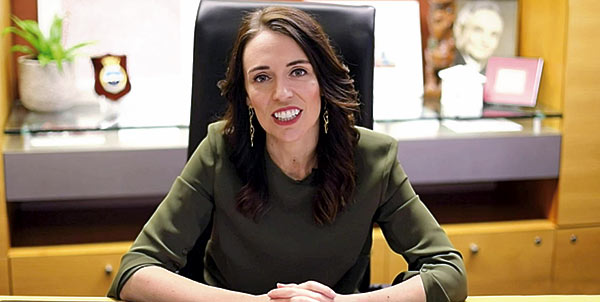
EXHIBITS, ART SHOW, and DEALERS
For the “hall,” con organizers presented an assemblage of links to fan and award histories, GoH exhibits, art displays, dealers’ tables, and more. Exhibits included Misty and Larry’s Trippy Timeline, Artist GoH Greg Broadmore, Fan GoH Rose Mitchell, Fan Fund Auction Roadshow, In Memoriam: NZ Fandom’s Guiding Stars, Remembering Mervyn Barrett, Hugo Award History & Stories, First Fandom: Big Heart Award, Cool Cats Continuous CoNZealand Collection, YarnBombing, Artist Mike Hinge, NZ Fandom, NZ SF&F History, SF&F Tiki Tour of NZ with Stamps, A Brief History of the Sir Julius Vogel Award, the Rotsler Award, etc. There were in-depth exhibits on the design and build of the Retro Hugo base and the 2020 Hugo base. There was a 3D exhibit space that included the art show and the exhibit links; the page had a dizzying effect while navigating, but points for effort to create a virtual space, and the ambient noise added a nice touch. The Art Show had a virtual reception Thursday evening, showcasing the seven artists: John Harris, Raymond VanTilburg, Sarah Clemens, Drakon Creative, Emma Weakley, España Sheriff, and Giovanna Fregni.
The online dealers section featured 12 vendors, including Skyboat Audiobooks; indies like Twelfth Planet, Paper Road, and Journey Press; artists and designers; and authors. An anonymous dealer said, “I didn’t have time available to learn a whole new set up and then ask and get feedback from them on a tight turnaround. The live function for customers to come past and talk didn’t seem to work all the time for me. And I had very little sales that week.”
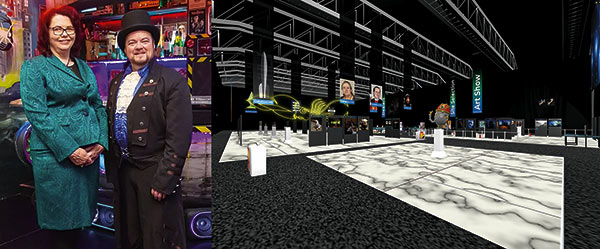
PARTIES
Parties ran in three 3-hour blocks each day, to hit different time zones: 7:00-10:00 a.m., 3:00-6:00 p.m., and 11:00 p.m.-2:00 a.m. NZST. Party Maven Kristin Seibert said, “We ran nearly all convention parties in the party zoom as public, and even roleplayed that the Main Room of the zoom was the hallway of the party block at the hotel.” Over 50 parties were listed on the schedule, though many of them were by repeated hosts, such as DisCon III with 13 slots. Parties included Rose Mitchell’s birthday party, Space Nuts-Mars 2020 Mission Watch Party, and The Worldcon Japan Party; most parties were hosted by convention bids. “The Comatose Cat (AKA Dead Dog) Party was a bunch of zoom rooms named after exhausted kitties and it lasted 9 whole hours before the equally exhausted Hallway crew kicked everybody out to the Discord so we could sleep!”
This year’s “Hugo Losers Party,” officially named “the Hugo Finalists Party” was held in the same zoom as the public parties, “in rooms that weren’t on the welcome sign and with Super Secret Passwords to give to the Hallway Monitors/Greeters. This allowed those invited to wander from the private party to the public ones in a manner that more closely resembled an in-person con.”
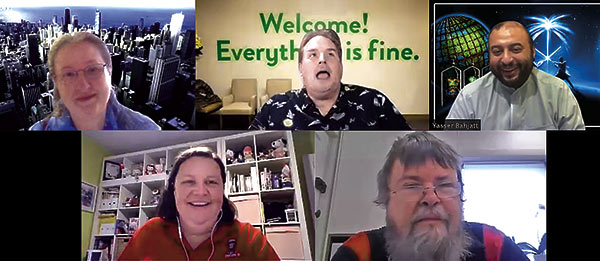
CON PUBLICATIONS
The souvenir book came in at 128 pages, with cover art and interior images by Greg Broadmore. Contents included a greeting from the chairs, sections on the GoHs and toastmaster, a History of NZ Fandom, a list of Hugo Awards winners since ’53 and Retro Hugo Awards winners since ’39, the full committee list, a WSFS business material insert, and an In Memoriam page. The book featured extensive 2020 Hugo Awards information, including lists of finalists with story blurbs and author bios and a short explanation of the awards.
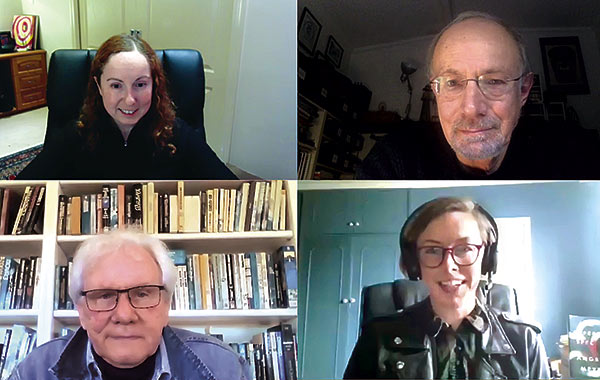
HUGO AWARDS
The 67th Hugo Awards Ceremony took place at 11:00 a.m. NZST on August 1, 2020. Toastmaster George R.R. Martin introduced the ceremony via video from the Jean Cocteau Theater in Santa Fe, New Mexico. The ceremony switched between live feeds and prerecorded presentations. The three-and-a-half hour event was beset by problems, such as poor sound quality, erratic live-feed editing, and connectivity issues.
Martin presented the first award of the day, the Lodestar Award for Best Young Adult Book, to Naomi Kritzer for Catfishing on CatNet. Kritzer said, “This year has forced all of us to explore ways to connect to virtual space and to discover both its strengths and its limitations. Thank you to everyone who read this book, and I’m so glad that it spoke to you.” She thanked editor Susan Chang, Lyda Morehouse, Eleanor Arnason, Theo Lorenz, Adam Stemple, Kelly Barnhill, husband Ed, and children Molly and Kiera, “who have given me love, support, belief, and occasional slack with household chores when my deadlines were imminent.”
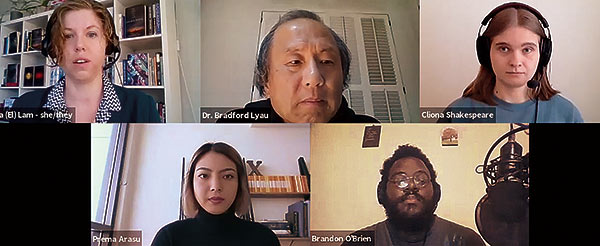
Martin presented the Astounding Award for Best New Writer to R.F. Kuang, who thanked voters, agent Hannah Bowman, and editors David Pomerico and Natasha Bardon. Kuang said, “If you’re an author of color, you will very likely be paid only a fraction of the advance that white writers are getting. You will be pigeonholed, you will be miscategorized, you will be lumped in with other authors of color whose work doesn’t remotely resemble yours. The chances are very high that you will be sexually harassed at conventions, or the target of racist microaggressions, or very often just overt racism. People will mispronounce your name repeatedly, and in public, even people who are on your publishing team. Your cover art will be racist – you will have to push against that. And the way people talk about you and your literature will be tied to your identity and your personal trauma instead of the stories you are actually trying to tell. And if I had known all of that when I went into the industry, I don’t know if I would have done it. So I think that the best way that we can celebrate new writers is to make this industry more welcoming for everyone.”
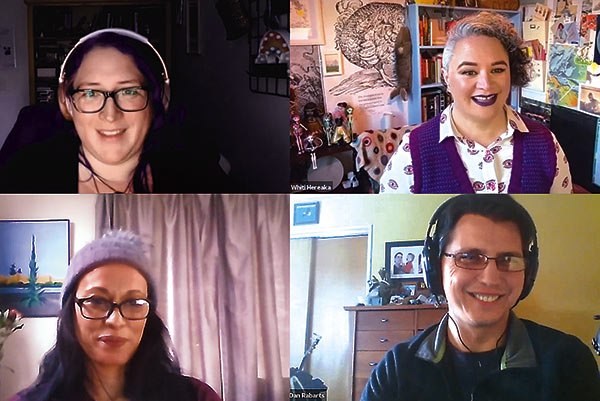
2020 Hugo Award base designer, artist John Flower, gave a presentation on the crafting of the base as well as his inspirations and intentions behind the design.
Fan GoH Rose Mitchell presented the finalists for Best Fancast and Best Fanzine. Illustrator Raya Golden presented the Best Fancast Award to Our Opinions Are Correct. Charlie Jane Anders and Annalee Newitz accepted, Anders saying, “Our podcast is explicitly about the relationship between science fiction and society. And we believe that the unexamined story is not worth reading or writing.” Newitz said, “We need stories that tell us about how we can rise up and change the world. But at the same time, we also need stories that help us escape, just to ease our pain and give us hope that this too shall pass.” Newitz thanked producer Veronica Simonetti and partners Jesse Burns and Chris Palmer.
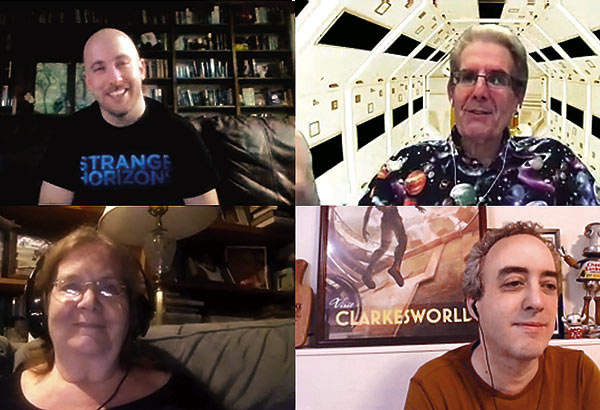
Golden presented the Best Fanzine Hugo to The Book Smugglers. Thea James accepted, thanking “fellow fans, readers, writers, and creators…” as well as Charles Payseur, A.C. Wise, and other contributors. James said, “We have been running The Book Smugglers for over ten years, as two loud, opinionated women on the internet – one of us Filipino-American and the other Brazilian. We have been giving space for diverse voices to be heard, read, and seen, and we know now that is even more important now than it has ever been, in the fight for social justice in the face of fascism, systemic oppression, and racism around the world. Black lives matter.”
DUFF delegate Erin Underwood presented the Best Fan Writer nominees. Golden presented the award to Bogi Takács, who thanked family, spouse R.B. Lemberg, kid Mati, and “everyone for thinking of me, for voting for me, for spreading the word.” Takács presented a list of recommended writers and reviewers, and finished by saying, “Some of what I have to say in English is unpublishable in Hungarian, and who knows how long it’s going to be publishable in English either. I often feel like the simple act of speaking is an uphill battle – at conventions, online on social media, anywhere really. So if you feel like that – you’re not alone. I am going to continue speaking as much as I can, and working toward solidarity as best as I can. Thank you for listening, és akkor magyarul is, köszönöm szépen.”
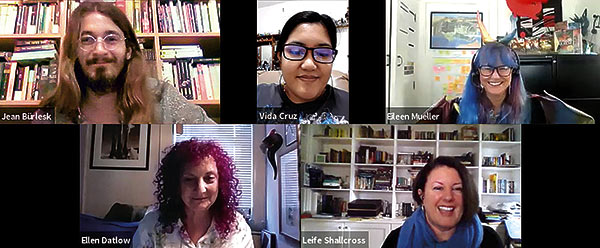
GUFF delegate Alison Scott presented the Best Fan Artist finalists, and Golden presented the Hugo Award to Elise Matthesen. Grateful, Matthesen thanked people who had been inspirations or participants in events, including Amal El-Mohtar, Fran Wilde, and Shawna Brown, saying, “Art is not a sprint or a marathon, art is a relay race. We are given something, we build it into something new and we pass that along….. I look forward to seeing the art we all make together in the future.”

Best Semiprozine went to Uncanny, edited by Lynne M. Thomas & Michael Damian Thomas, Michi Trota, Chimedum Ohaegbu, Joy Piedmont, Angel Cruz, Caroline M. Yoachim, podcast produced by Erika Ensign & Steven Schapansky. Lynne M. Thomas thanked editors, contributors, the CoNZealand membership, “and of course our ombudsman and world’s greatest daughter Kaitlin.” Michael Damian Thomas thanked the Space Unicorn Ranger Corps. In a posted version of their speech, they thanked Disabled People Destroy Fantasy guest editors Nicolette Barischoff, Lisa M. Bradley, and Katharine Duckett. Ohaegbu thanked authors and magazine staff, saying, “I’m the first Black woman editor to win a Hugo in the semiprozine category, not the first to be nominated but among the first, and it’s an odd position to be in because Black women have always been here and deserving in the genre, not just as writers but also as curators, editors, and arbiters of what speculative fiction can look like.” Trota thanked the team, saying, “This Hugo Award is especially meaningful because 2019 was my last year of eligibility as part of Uncanny‘s staff. I can’t express how grateful I am to have this award as an end cap to my time with Uncanny.” She described her experience at Uncanny as life changing and finished by saying, “when you have the means to widen the doorway and bring others up with you, especially if you have power and privilege: DO IT.”
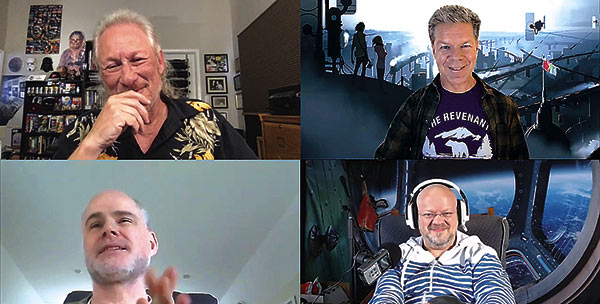
Steven H Silver presented the In Memoriam video, recognizing fans, authors, editors, and artists who died in 2019 and 2020.
John Picacio won the Hugo Award for Best Professional Artist. He thanked Irene Gallo, Leigh Bardugo, agent Joanna Volpe, the Mexicanx family, his supporters, and the Worldcon community. He said, “We’re gonna have to stick together and we’ve got a lot of battling to do.”
Robert Silverberg presented the nominees for Best Editor, both Short Form and Long Form. Ellen Datlow took the Short Form award, thanking CoNZealand, nominees, voters, and “all the writers who make my job such pleasure.”
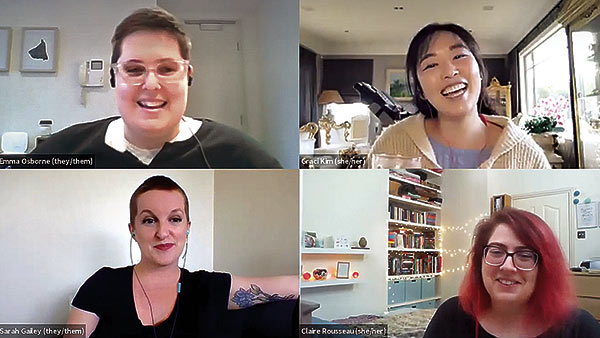
Navah Wolfe took the Long Form award. Wolfe said, “We work in a world, in an industry, where women, people of color, and people of marginalized backgrounds can be award-winning in their fields, and still have to deal with getting passed over and marginalized by the people that they work with…. When the world is feeling dark and hope is hard to come by, now more than ever it is essential that we look to our fiction to help us shape the futures we want to see.” She thanked family, husband, and “my three small humans,” Subterranean Press, CoNZealand staff, fellow nominees and finalists, and “the brilliant writers whose books I’ve had the privilege of working on.”
Best Dramatic Presentation Short Form finalists were presented by Weta Workshop co-founders Richard Taylor and Tanya Rodger. The Good Place: “The Answer” took the award. Producers Josh Siegal and Dylan Morgan accepted.
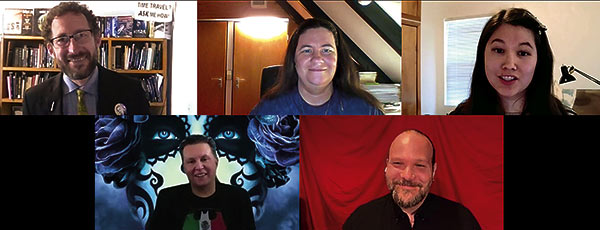
Actor Elias Galegos presented the Long Form award to Good Omens. Neil Gaiman accepted, saying, “Terry [Pratchett] never won a Hugo. The only time he was nominated for a Hugo Award, he actually withdrew the novel from consideration, telling people that if he had a book nominated for a Hugo, it would ruin his WorldCon with worrying. It wasn’t that he didn’t care. It was that he cared too much…. For all of the honors and the love heaped upon Terry during his lifetime, the one he really cared about was the Hugo Award.” He thanked the “hundreds of collaborators” including director Douglas Mackinnon and actors Michael Sheen and David Tennant. He finished by saying, “Thank you, all of you, for giving Terry Pratchett his Hugo Award.”

Best Graphic Story or Comic went to LaGuardia, written by Nnedi Okorafor, illustrated by Tana Ford, colours by James Devlin. Okorafor accepted, saying, “This story, it’s about identity, it’s about immigration, it’s about prejudice, diversity, travel, humanity, culture, and aliens…. The cover is a protest. I hope this whole book joins groups like Black Lives Matter in amplifying those voices in this country, worldwide. We’re calling for justice, equality, and humanity…. Tana and I were really nervous about putting something that political on the cover, but, you know, Karen is an awesome editor and she knew.” She thanked editor Karen Berger, Ford, Devlin, Dark Horse, readers, and voters.
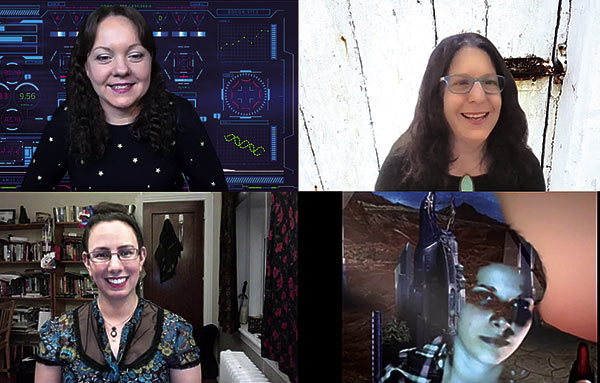
Okorafor presented the finalists for Best Related Work. “2019 John W. Campbell Award Acceptance Speech” by Jeanette Ng took the award. Ng said, “The fight isn’t over and it extends well beyond the pages of our books. My dusty academic soul does not dream easily of futures. So I can’t make pronouncements about our genre except I want it to be something beyond my feeble imagination.” She credited Michael Moorcock for “calling Campbell a fascist for years,” and thanked Alec Nevala-Lee “who wrote the book and brought the receipts” as well as the people who helped make changing the award’s name happen. She finished saying, “We should come together to write a future of joy and hope and change.”
Mary Robinette Kowal presented the finalist for Best Series. The Expanse by James S.A. Corey took the award. Daniel Abraham accepted, thanking “the writers who came before us… and the next generations that are coming up now and broadening that vision and broadening that conversation and broadening that perspective in ways that make it richer. Science fiction, fantasy, speculative fiction are more and more important in a world as the technology moves forward and as the questions of humanity and the ties that we have to each other become more and more at issue: not just in our fiction, but in our world and our news.”
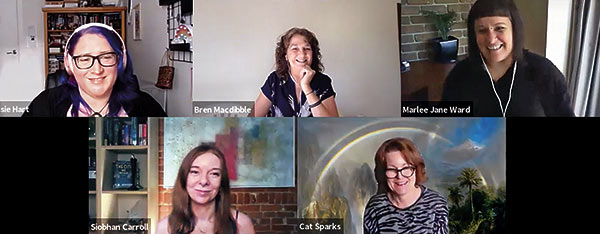
“As the Last I May Know” by S.L. Huang, published at Tor.com, took the award for Best Short Story. Huang said, “I do believe that we can fight. We can keep pushing. We can carve out pockets of goodness in the world and keep pushing those pockets farther and farther in our countries, our industries, our communities. And thank you, especially tonight, to the people who speak up and stand up for justice here in Science Fiction and Fantasy.” Huang thanked editor Diana Gill, agents Russell Galen and Angela Cheng Caplan, writing communities and crit partners, first readers Maddox Hahn, Toria Hegedus, and Rob Livermore, and Huang’s sister.
N.K. Jemisin’s “Emergency Skin”, published in Amazon Original Stories collection Forward, won for Best Novelette. Jemisin thanked Hugo Award voters, Amazon, her editor, copyeditor, agent, assistant, and members of the Altered Fluid writing group.
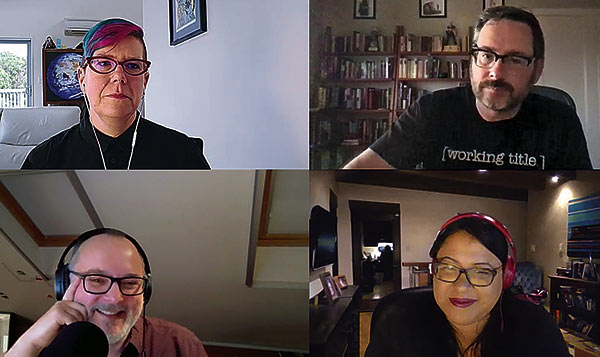
Best Novella went to This Is How You Lose the Time War by Amal El-Mohtar & Max Gladstone. El-Mohtar thanked husband Stu, editor Navah Wolfe, agent DongWon Song, Saga Press and Jo Fletcher Books, Greg Stadnyk, Molly Powell, Jo Fletcher, and Milly Reid. Gladstone thanked wife Stephanie, parents and sister, Bob and Sally Neely, “Uncle Danny for the Zelazny and Leiber, and Uncle Paul who gave me the Star Trek VHS tapes, back when those were a thing.” El-Mohtar said, “For many of us, this WorldCon may feel like a break in a chain; but we invite you to think of it, instead, as a broadening of space, a widening of our circles. In a sense this is as ‘world’ as the con has ever been; it’s a vision of WorldCon in a world where the only borders are lines in time.”
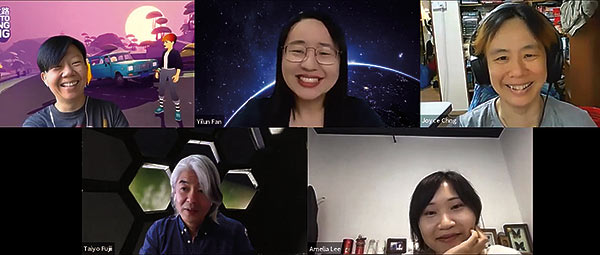
Arkady Martine’s A Memory Called Empire took the Hugo Award for Best Novel. Martine called the award a gesture of hospitality. “A gesture that I deeply appreciate and which I wish so very profoundly was more easily extended to the authors, artists, editors, and fans of color who deserve as much hospitality as I do.” She related this sentiment to the novel, saying, “I wrote a book which considers whether someone ever can truly be made welcome…. In my book I let [protagonist] Mahit Dzmare have a version of the answer: for her, to be welcomed into the heart of empire is to lose the ability to truly go home inside her own mind. For me that’s actually a hopeful answer, for me – a person who cannot stop writing about exile, and about desire – who is an American, and a Jew, and a climate activist, and a historian, and who keeps falling in love with things bigger than her head, however unwisely…. But right here and right now I feel like I might summon up a different sort of answer for myself, about welcome…. Here, I have been made welcome.”
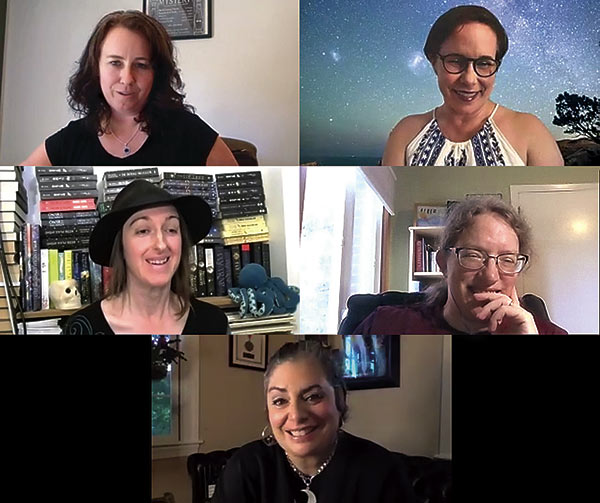
Martine thanked her father, “who gave me science fiction when I was far too small to know better – we called it science affliction and I am gladly afflicted at the moment,” her mother, agent DongWon Song, editor Devi Pillai, “and always and most importantly, my wife Viv: all the stories are for you. You hang the stars and I couldn’t do this without you.”
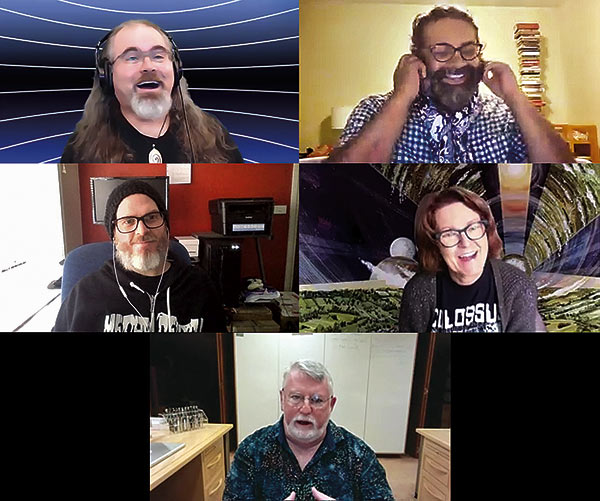
The 2020 Hugo Ceremony is available to view at <https://watch.thefantasy.network/the-2020-hugo-awards-livestream/>. A number of viewers and finalists complained online afterward about some of the ceremony content being insulting and backward looking and about name mispronunciations, among other things.
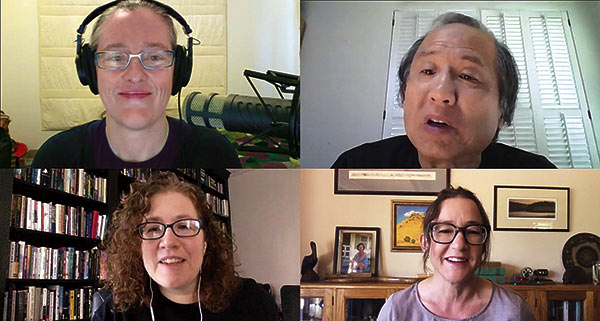
WORLDCON 2021 AND BEYOND
The 79th World SF Convention site was announced during Worldcon: DisCon III will be held August 25-29, 2021 in Washington, DC at the Marriott Wardman Park Hotel, featuring guests of honor John Harris, Nancy Kress, Toni Weisskopf, and Ben Yalow, and special guests Malka Older and Sheree Ren.e Thomas, who will also host the Hugo Awards.
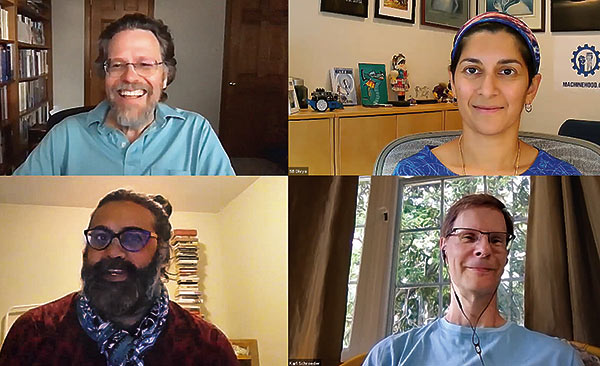
The 80th World SF Convention, Chicon 8, will be held September 1-5, 2022 in Chicago at the Hyatt Regency, featuring guests of honor Charles de Lint, Floyd Norman, Edie Stern, Joe Siclari, and Erle Korshack, with toastmasters Annalee Newitz and Charlie Jane Anders.
–Arley Sorg & Liza Trombi
2020 WSFS Business Meeting
Because of the COVID-19 pandemic, this year’s World Science Fiction Society Business Meeting was probably the shortest every held, lasting around five minutes. WSFS rules forbid proxies or other forms of remote participation. The quorum for a WSFS Business Meeting is 12 members physically present. Twenty-three members of CoNZealand local to Wellington attended a stripped-down meeting chaired by “Emergency Holographic Presiding Officer” Darusha Wehm to do the bare minimum necessary to approve all time-constrained business while postponing everything else until next year.
The following works had their eligibility for a Hugo Award extended due to limited distribution: Bacurau (movie), The Vast of Night (movie), Beastars Season One (television series, including all 12 episodes), The Color Out of Space (movie), and An Annotated Asimov Biography (related work).
Ratification votes on all constitutional amendments passed on from Dublin were postponed until next year. No new business was submitted. New proposals can be submitted to DisCon III for consideration in 2021.
The meeting was recorded and posted to the YouTube Worldcon Events channel at <youtu.be/DAvihw4R3Yo>. Minutes of the meeting, the full text of the proposals passed on to 2021, and the current text of the WSFS Constitution are posted at the World Science Fiction Society’s website: <www.wsfs.org/rules-of-the-world-science-fiction-society>.
–Kevin Standlee
From the September 2020 issue of Locus.
 While you are here, please take a moment to support Locus with a one-time or recurring donation. We rely on reader donations to keep the magazine and site going, and would like to keep the site paywall free, but WE NEED YOUR FINANCIAL SUPPORT to continue quality coverage of the science fiction and fantasy field.
While you are here, please take a moment to support Locus with a one-time or recurring donation. We rely on reader donations to keep the magazine and site going, and would like to keep the site paywall free, but WE NEED YOUR FINANCIAL SUPPORT to continue quality coverage of the science fiction and fantasy field.
©Locus Magazine. Copyrighted material may not be republished without permission of LSFF.


